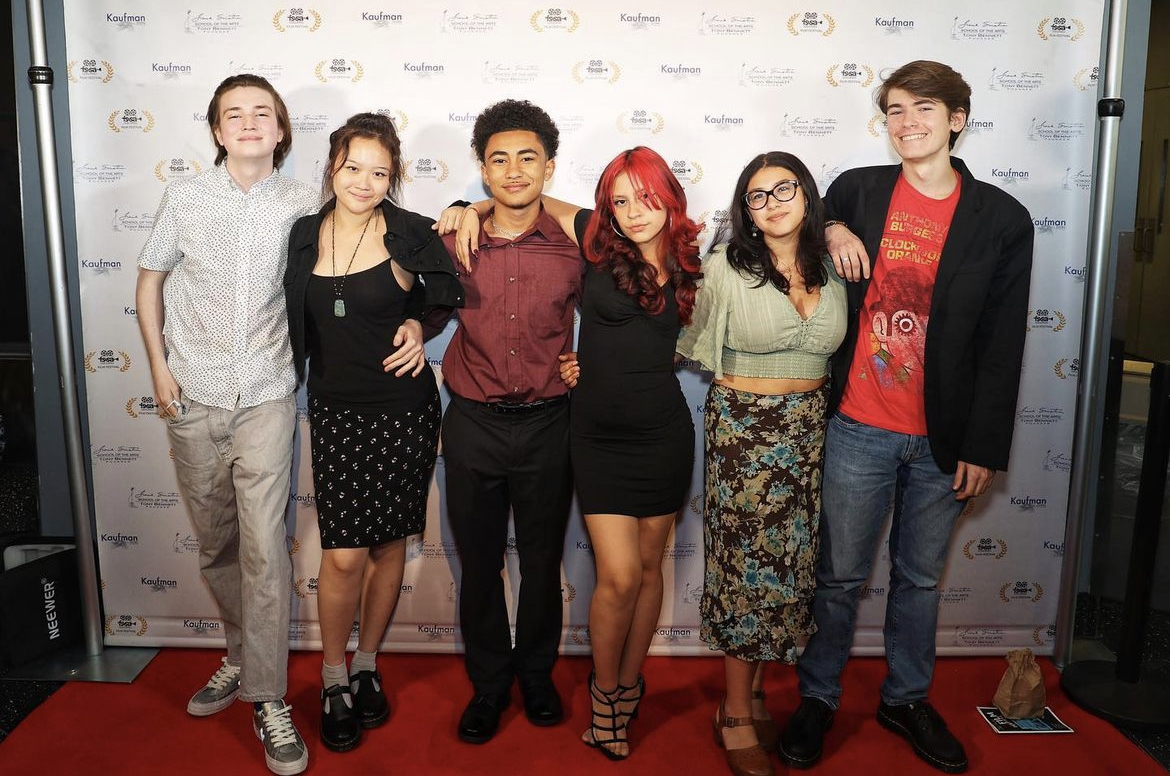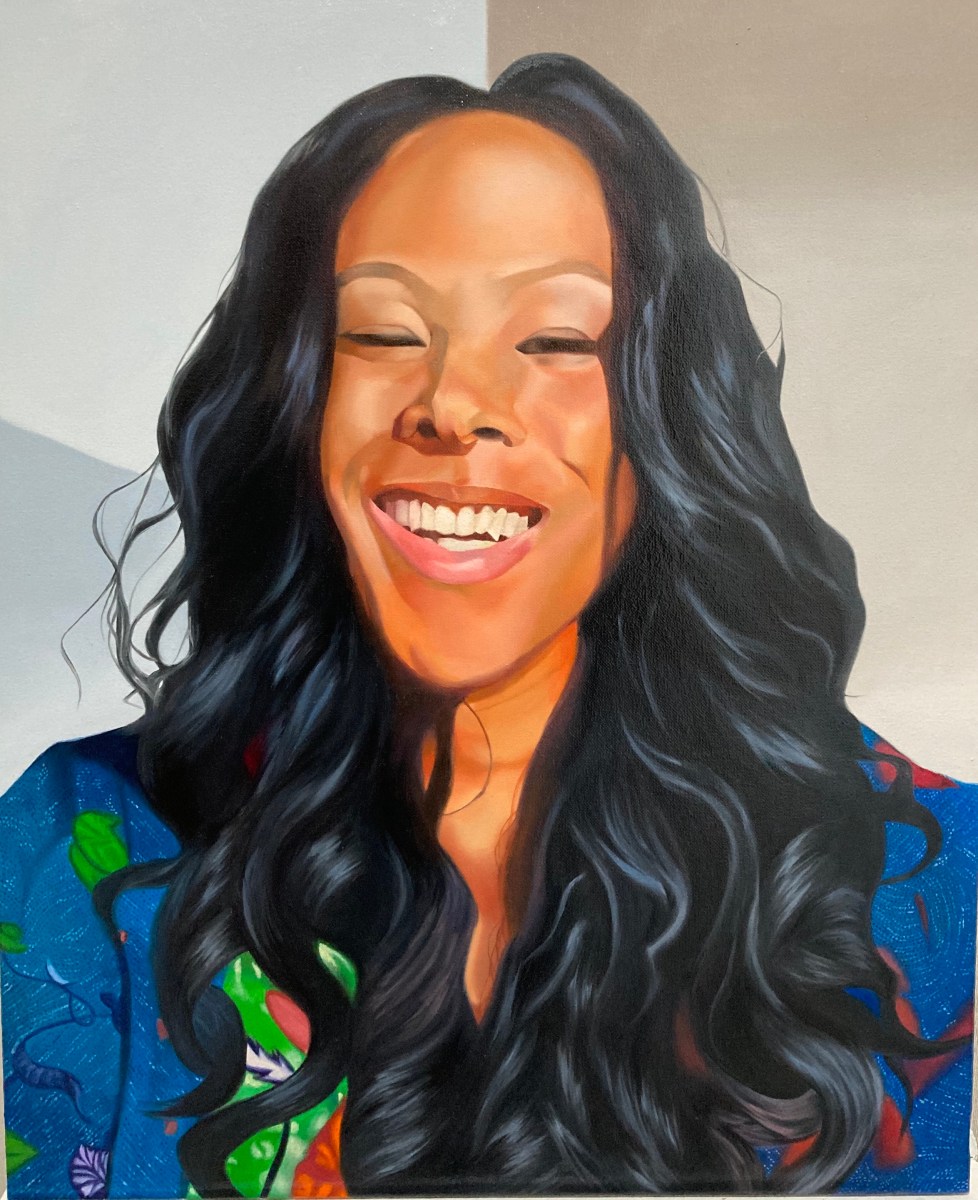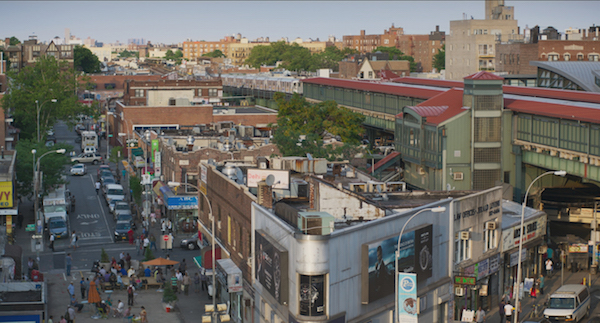
BY SEAN EGAN | Widely regarded as one of the most innovative and important figures in documentary film, Frederick Wiseman’s distinguished career spans nearly five decades. Since his 1967 debut, “Titicut Follies” (which exposed worrisome conditions at a state-run hospital for the criminally insane), Wiseman has provided immersive glimpses into how institutions and communities function, by presenting his footage without comment.
At age 85, and with his legacy (40 films) secure, one wouldn’t fault the director for slowing down. Instead, he’s going as strong as ever, as his newest feature, the sprawling, masterful “In Jackson Heights” has just been released to widespread acclaim. Playing at Film Forum (“really the best outlet for independent filmmakers,” Wiseman notes), it marks his 11th feature to run there — giving him the distinction of being the most-debuted filmmaker in the venue’s history.
“I wanted to do a movie about a new generation of immigrants to America,” Wiseman says, revealing the seed of an idea that would eventually lead him to Jackson Heights — an incredibly diverse neighborhood in Queens. He first visited in 2007 on the recommendation of a friend, and immediately identified its filmic potential.
“One of the things that struck me about Jackson Heights the first time I went there was how colorful it was,” he explains, describing the “color feast” of Roosevelt Blvd. “You want to take advantage of that because it looks great on film.”
While he wound up putting plans on hold after film and theatrical opportunities arose in Paris (“I figured Jackson Heights would still be around,” he jokes), he returned to the idea of shooting a film there in the spring of 2014. With a little help from leaders in the Jewish and Bengali communities, as well as a professor friend, he hit the streets, capturing a large swath of individuals and businesses in the area.
“It’s a combination of having community informants, in the best sense of the word ‘informant,’ and following my instinct, and luck,” Wiseman says of gathering the footage. Plus, Jackson Heights denizens were receptive to the cameras. “It’s very rare that anyone refuses. It’s equally rare that anybody looks in the camera.”
Wiseman shaped the resulting footage into a vivid, expansive portrait of a neighborhood. Ambling along at a pace that belies its 190-minute run time, the full spectrum of humanity and personalities are on display in “In Jackson Heights” — as is Wiseman’s knack for re-contextualizing the mundane (fruit stands, pedicures, electronics stores) through his bold framing. From a howlingly funny lesson at a taxi driving school, to somber reflections on discrimination, to the joyous, vibrant celebration of the historic Queens Pride Parade, Wiseman’s film, like its namesake neighborhood, is never dull.
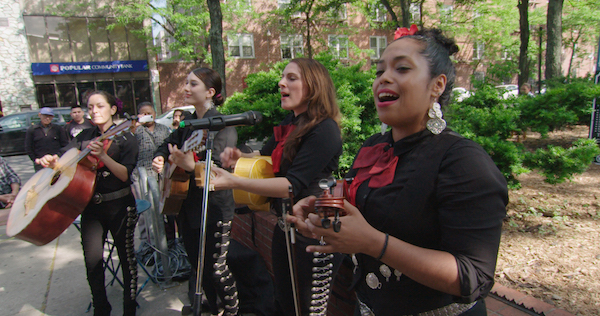
Wiseman’s always maintained that the shape of his movies, as they stand as finished works, come together during editing, and “In Jackson Heights” is no exception.
“You have to be pretty hardnosed, or at least think you’re being hardnosed, when you’re editing,” he says of the process, noting that of the 120 hours of rushes (raw footage) filmed for the movie, only three hours and change made it into the finished product. His process (which he describes as akin to writing a novel) involves editing whole sequences together (after discarding about half the rushes), and then attempting to build a narrative from them, in order to “discover” the film.
“As you begin to put the sequences together, themes emerge. I mean, themes emerge to some extent before that as well, but it’s interesting always to see how one sequence informs another,” Wiseman elaborates. “It’s a funny process of trying to be extremely rational about the material, and at the same time paying attention to your associations in terms of the thoughts drifting through your head. And out of that chaos, the right word, out of that interaction, the movie emerges. But on one hand highly rational, and on the other highly associational, or non-rational.”
One of the major themes is the passion Jackson Heights residents bring to community issues — issues that often render the neighborhood a microcosm of the entire city. Significant screen time is devoted to LGBTQ and immigrants’ rights groups. City Councilmember Daniel Dromm is seen advocating for public education reform, and the threat of increased rents and gentrification looms large over local business owners.
“I was looking for things that would get me into the issues that were of concern to the community,” Wiseman notes, but is quick to stress, however, that this was never the impetus for producing the feature.
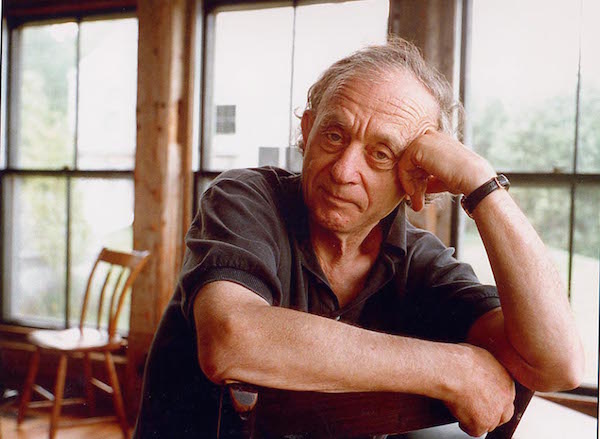
“I didn’t start with an abstract checklist of current issues. It’s just what emerged from the experience,” he asserts. “In a sense the final movie is always a report on what I’ve learned as a consequence of, in this case, living in Jackson Heights for nine or ten weeks, and being totally immersed in [editing] the material for eleven months,” he says, rejecting the notion that his movies are political.
“From my point of view, I make films that are complex analyses of a subject,” he states. “I don’t make ideological or didactic films. Because if you do that you have blinders on, because you leave things out or emphasize certain things to match your ideological position, and that doesn’t interest me.”
“I think, when a movie works, whether it’s mine or anyone else’s, it works because it moves on two tracks,” Wiseman posits. “It works on the literal track; who says what to whom, what’s going on. And the other is the abstract track, which is what is suggested by the literal events and their relationship to each other.”
This interplay makes “In Jackson Heights” a probing, resonant examination of a community — and it’s Wiseman’s ability to orchestrate it all that makes him America’s premiere documentarian, and a vital voice in cinema.
“In Jackson Heights” runs 190 min. Through Nov. 17 at Film Forum (209 W. Houston St. btw. Sixth Ave. & Varick St.). For tickets and info, visit filmforum.org or call 212-727-8110.












